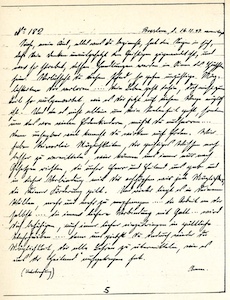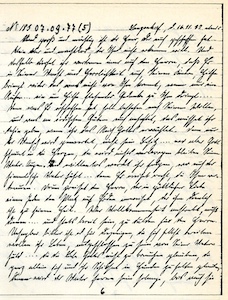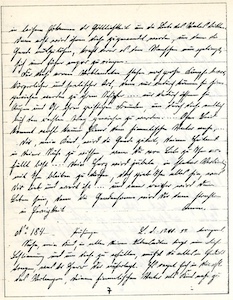B.D.-No. 1864
It is divine will that the human being should freely decide which path to take.... that he is free to go either way, upwards or downwards, and that he himself now decides without any compulsion. For only this has value before God, what he thinks and does freely out of himself, to which he gives his consent completely uninfluenced. For this reflects his whole being. He is neither forced to do one thing nor the other, but what his heart drives him to do is decisive for eternity. And thus neither external living conditions nor divine destiny determine the human soul's higher development but only his free will decides this, and thus every human being is given the same opportunity to reach the state of maturity on earth if he utilizes his free will correctly, i.e. if he uses it to draw closer to God. For if the will is directed towards God he will also always subordinate himself to God in his thoughts and actions and do everything that brings him closer to the eternal deity, and then his higher development is also guaranteed. Man is indeed taught what he should do; his thinking is guided in the right direction, but the free decision is up to him. He will also always be free to do and think differently than is divine will.... because complying with this in a state of compulsion will not bring him any spiritual progress and therefore only that which a person does out of his innermost drive is to be valued. If he only fulfils the task prescribed to him purely dutifully, then it also only has the value of a fulfilment of duty which, however, cannot earn the person a higher degree of maturity, whereas the slightest act of neighbourly love in free will, i.e. without incentive or reference to a reward, will place the soul in a higher degree of maturity because the gift of free decision was used in a God-pleasing way. A person can apparently carry out great works of neighbourly love but if he does so under a certain amount of compulsion or under the influence of other people, he will nevertheless not reap a great reward, for only the degree of love in which the deed was accomplished is decisive, i.e. to what extent a person's love determines his will to act. A person capable of love also allows his will to become active, for he who is in love also desires God out of his innermost drive, thus love, free will and approaching God always go hand in hand. Where there is one, there is also the other, but the state of compulsion, no matter from which side it is exercised, is always an obstacle to the maturity of the soul. Thus, divine will may be taught, but it may never be forced to be obeyed by coercive measures, for this would not be any kind of spiritual progress....
Amen











